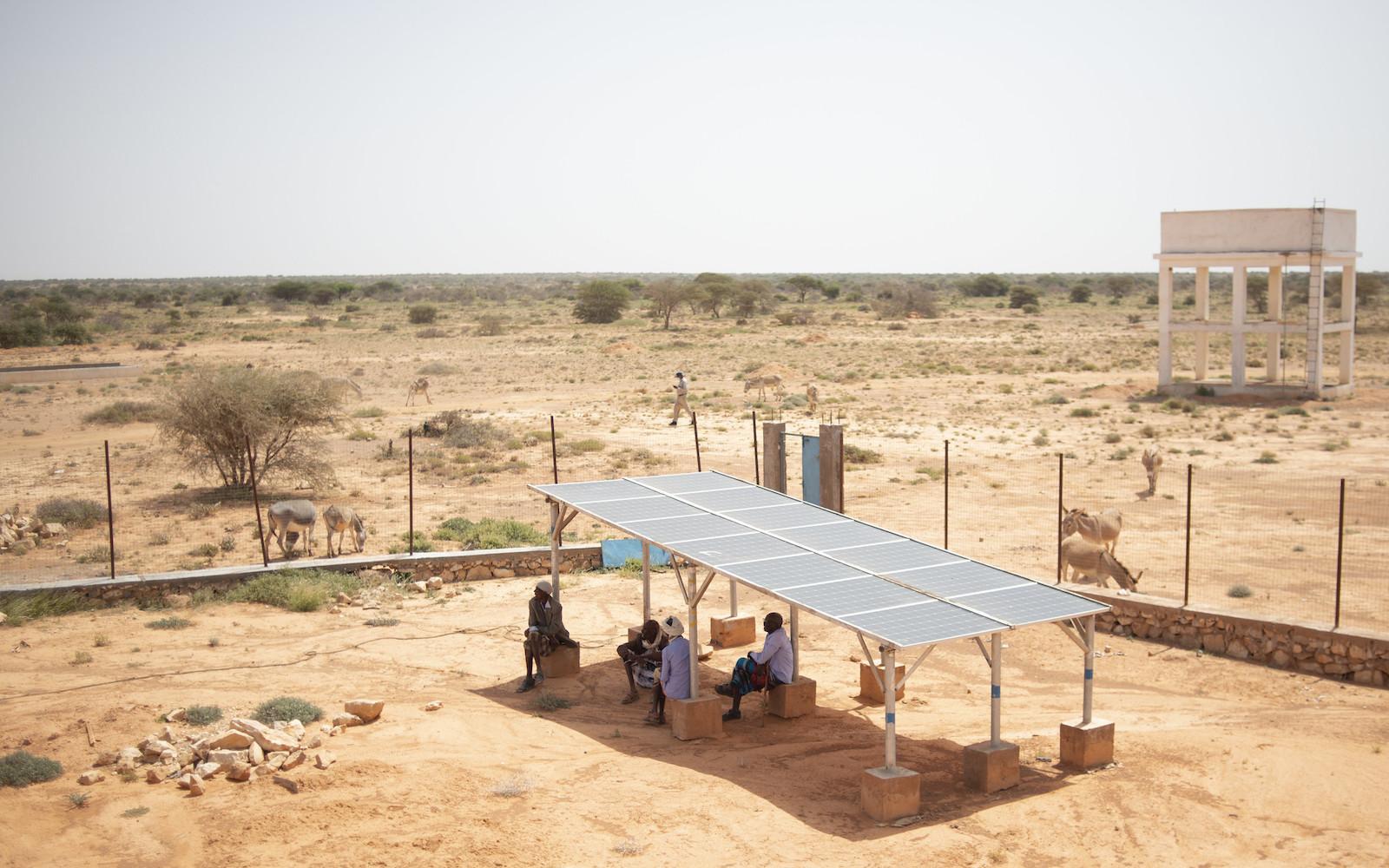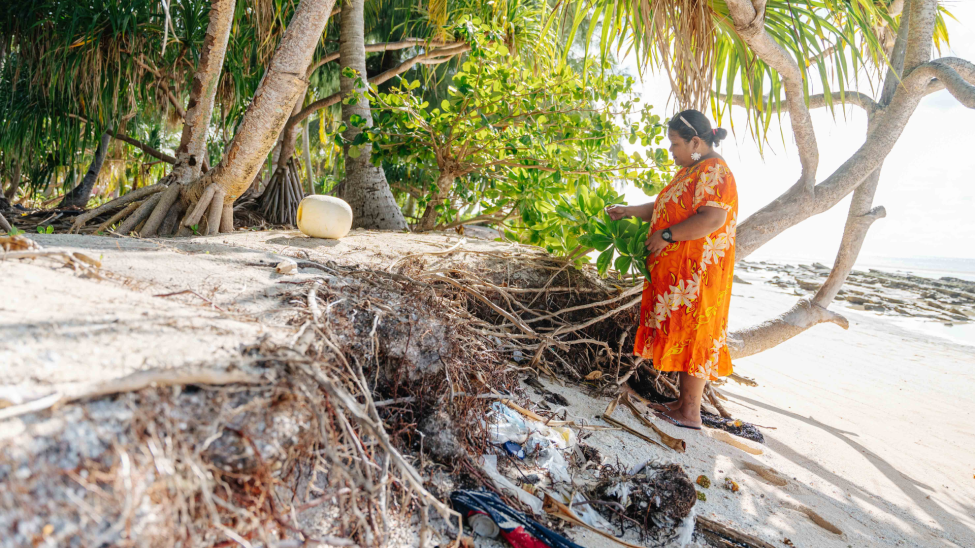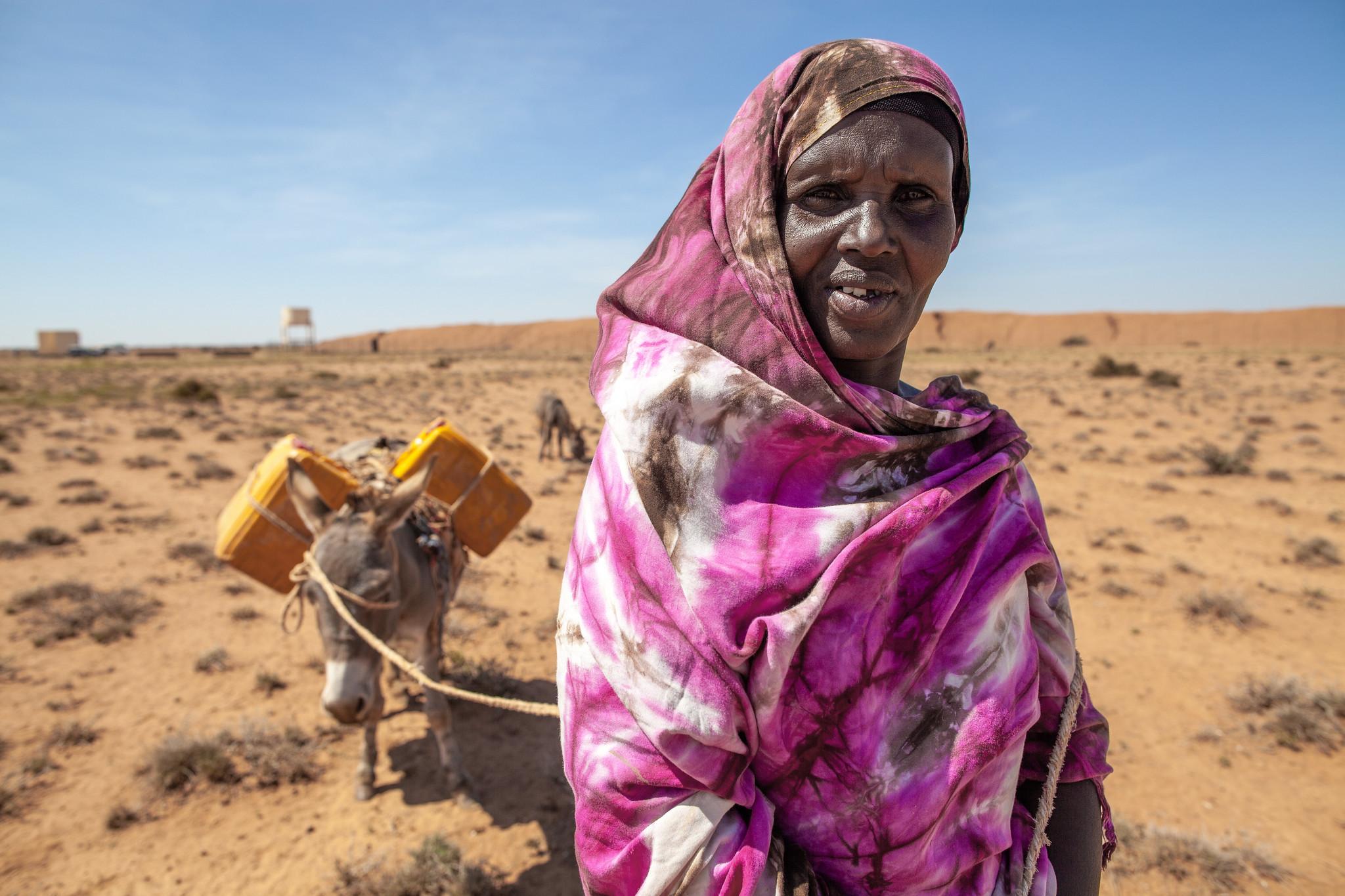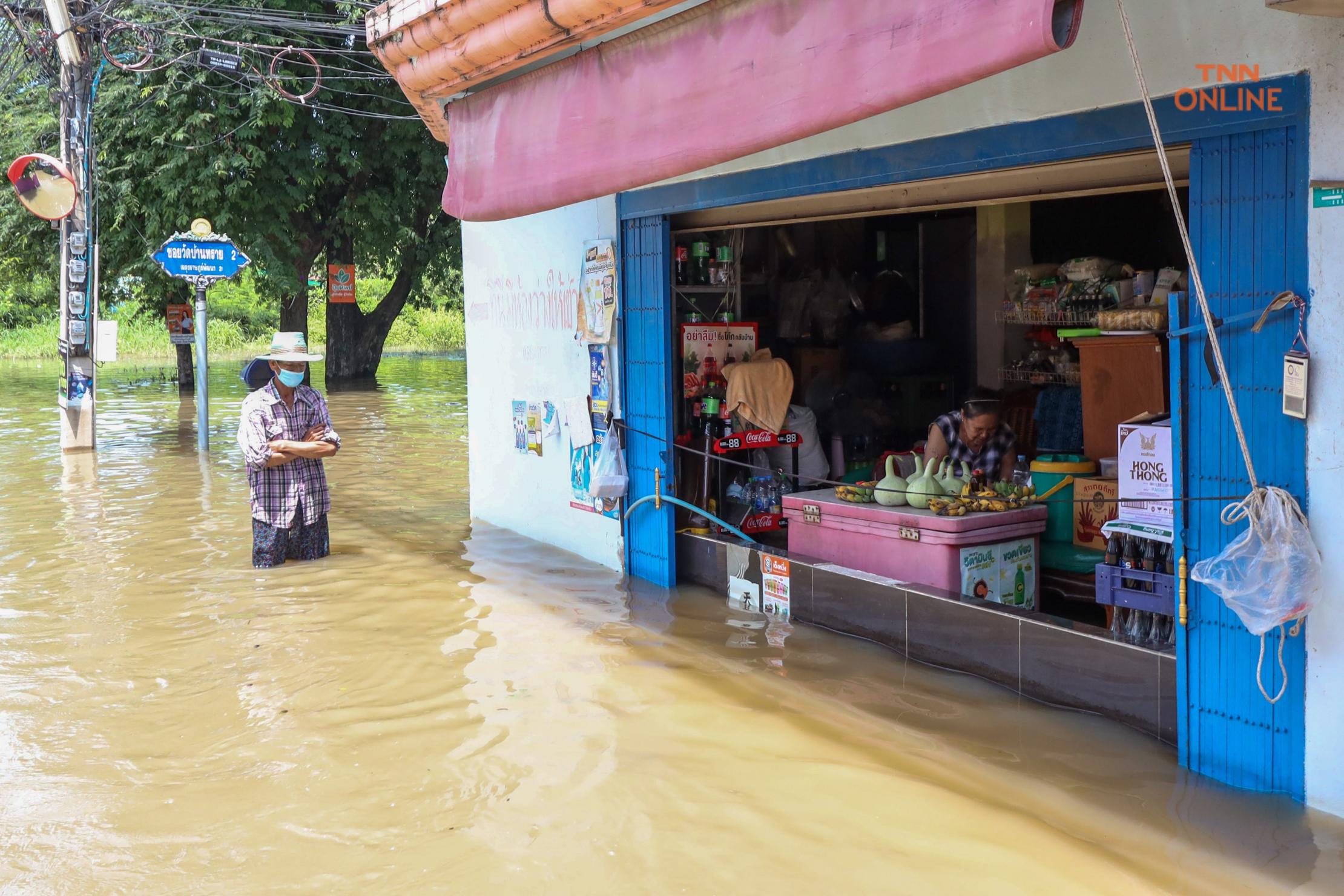Seventy percent of the most climate-vulnerable countries are also among the most fragile
Building a new, secure climate future
April 17, 2024

Residents sit in the shade of solar panels in Somalia. UNDP is working with partners around the world to address climate-related security risks and to prevent future conflicts.
Irene Abon was only seven years old when she stepped foot on her new island home.
In 1985, Irene’s family and other residents of Rongelap Atoll in the Pacific had to leave their homes due to the fallout from a hydrogen bomb detonated three decades earlier. Suffering from radiation syndrome, the community settled on Mejatto Island in the Marshall Islands.
“When we first arrived, the island contained nothing, maybe just the coconut trees,” recalls Irene, now a farmer.
Although she and her family found a new and safer place to live, Irene has seen major changes in her community over the last 30 years. Increased temperatures and recurrent droughts have affected their ability to produce food. Coastal areas eroded by the sea and high tides bring salt water all over the island. The resulting food scarcity risks sparking tensions within the community.

Irene Abon's family, forced to move because of decades-long fallout from a hydrogen bomb, have built a new home on Mejatto Island in the South Pacific.
“The effects of climate change have definitely impacted the community because when it gets dry and there’s no rain, people feel uneasy as the crops they plant are not healthy or good for harvesting,” Irene says.
However, solar-powered garden towers that grow plants without soil have given the community a new chance.
“They don’t need much water. Plants grow here regardless of the weather condition. The food can give necessary vitamins to our children and help those who suffer from malnutrition.”Irene Abon, farmer
The garden towers are helping to ensure there is enough food for all, thus preventing conflicts linked to food scarcity. The initiative is part of the Climate Security in the Pacific Project, run by UNDP and the International Organization for Migration, with support from the United Nations Peacebuilding Fund. The objective is to protect local communities with investments in climate action, preventing tension that can lead to insecurity and conflicts.

An estimated two billion people live in fragile and conflict-affected areas.
Where climate change and conflict intersect
The climate emergency is affecting people’s lives on every continent. In 2023, the world experienced the warmest year on record. The number of violent conflicts are also at their highest since the United Nations was founded in 1945.
An estimated two billion people live in fragile and conflict-affected areas and 3.3 to 3.6 billion people are in highly vulnerable contexts because of climate change. Seventy percent of the most climate-vulnerable countries are also among the most politically and economically fragile.
Yet, finance for the climate is unequal. While non-fragile states received US$161 per person between 2014-2021 in international climate change funding, the most fragile states received just $2.1 per person.
Climate change does not directly lead to conflict or instability, but it can interact negatively with the factors that impact the lives of those most vulnerable in social, political, and economic ways. When those risks are not addressed, new crises and conflicts can erupt, or it can exacerbate existing tensions. That’s why addressing climate-related security risks is central for local sustainable development, and to prevent future conflicts.
Ending disputes over natural resources
Over 800,000 people have been displaced in Mali since 2012 because of armed conflict that prevents the cultivation of fields. Together with the Global Environment Facility (GEF) and the local Environment and Sustainable Development Agency, UNDP will help protect and reverse 21,000 hectares of degraded land for 150,000 people.
By simultaneously combating land degradation and restoring land productivity, along with conflict resolution between farming and herding communities for water resources, local communities will be less vulnerable to the impact of conflict.
In North-Western Nigeria, UNDP with the support of the Government of Norway have launched a climate-peace hub to help end disputes over natural resources. Forested areas have come under the control of armed groups, driving local communities to cut down trees and shrubs around urban areas, causing deforestation and land degradation. This has resulted in increased flooding during the rainy season, leading to infrastructure loss, and is affecting food production and distribution, as well as many peoples’ livelihoods.
The UNDP-led initiative aims to reduce tensions over resources and land degradation by improving communal management of natural resources and promoting climate-resilient livelihoods and green jobs.

The climate emergency is affecting people’s lives on every continent. In 2023, the world experienced the warmest year on record and extreme weather is becoming more frequent.
Preventing future climate insecurity
As part of the Climate Security Mechanism, UNDP works with partners to advance prevention and sustain peace in a climate-changing world. The Crisis Offer reinforces the need to address the climate emergency to end and anticipate conflicts.
At COP27, UNDP supported the launch of the Climate Response for Sustaining Peace initiative which aims to ensure that climate responses contribute to sustainable peace and development. In 2023, the COP28 Declaration on Climate, Relief, Recovery and Peace was endorsed by the organization in support of the most vulnerable countries and communities.
In 120 countries and territories, including 46 in fragile and conflict-affected settings, UNDP is working closely with governments and local communities to improve climate security and help countries to implement the 17 Sustainable Development Goals.
Whether it is in a small community in the Pacific Islands or in countries suffering from long-term conflicts, climate security action has proved to be central to avoiding the risk of increasing social tensions and to help ensure a sustainable future for everyone.

 Locations
Locations



